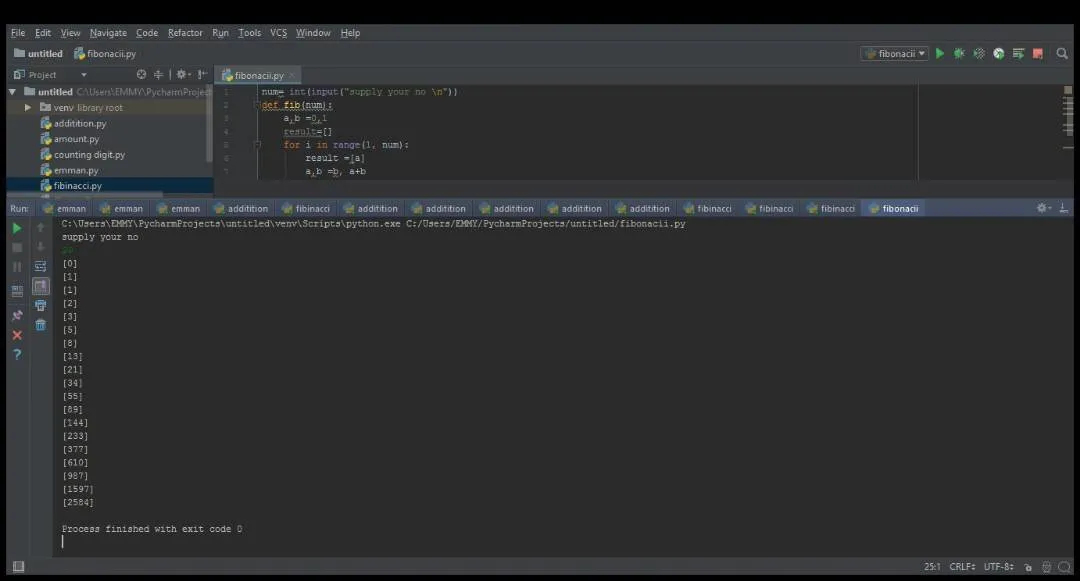
About the Tutorial Python is a general-purpose interpreted, interactive, object-oriented, and high-level programming language. It was created by Guido van Rossum during 1985 – 1990.
Like Perl, Python source code is also available under the GNU General Public License (GPL). Python is named after a TV Show called ‘Monty Python’s Flying Circus’ and not after Python-the snake. Python 3.0 was released in 2008. Although this version is supposed to be backward incompatibles, later on many of its important features have been backported to be compatible with the version 2.7.
This tutorial gives enough understanding on Python 3 version programming language.
The Fibonacci Sequence is the series of numbers:
0, 1, 1, 2, 3, 5, 8, 13, 21, 34, ...
The next number is found by adding up the two numbers before it.
The 2 is found by adding the two numbers before it (1+1)
The 3 is found by adding the two numbers before it (1+2),
And the 5 is (2+3),
and so on!
Requirements
- A compatible PC system
- Installed and running Tutorial Python 3.0
- Programming codes
Level Difficulty - Intermediate
Here is a step by step illustration
Lauching of the Tutorial Python
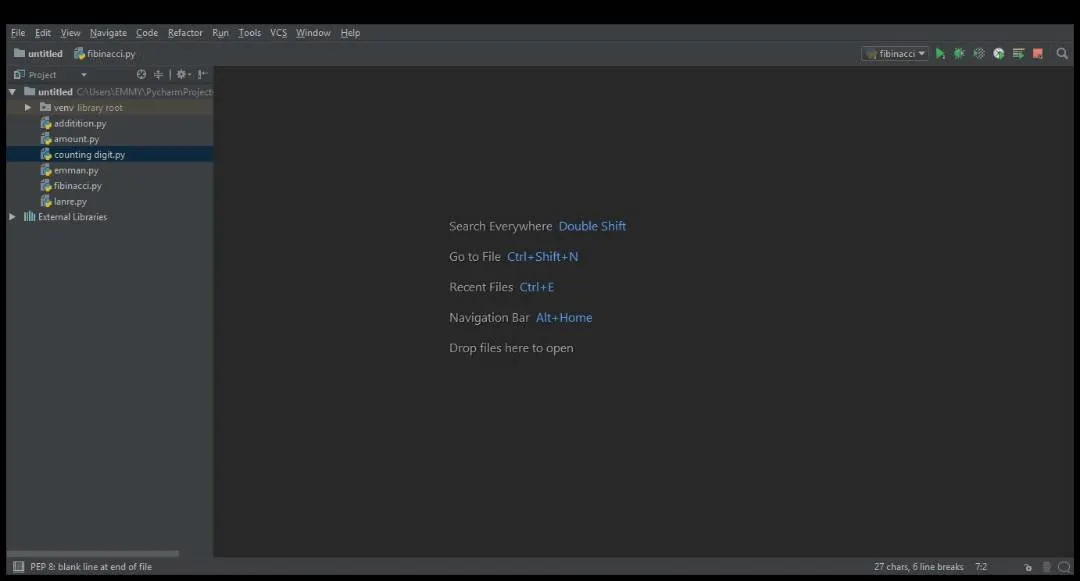
How the homepage looks like
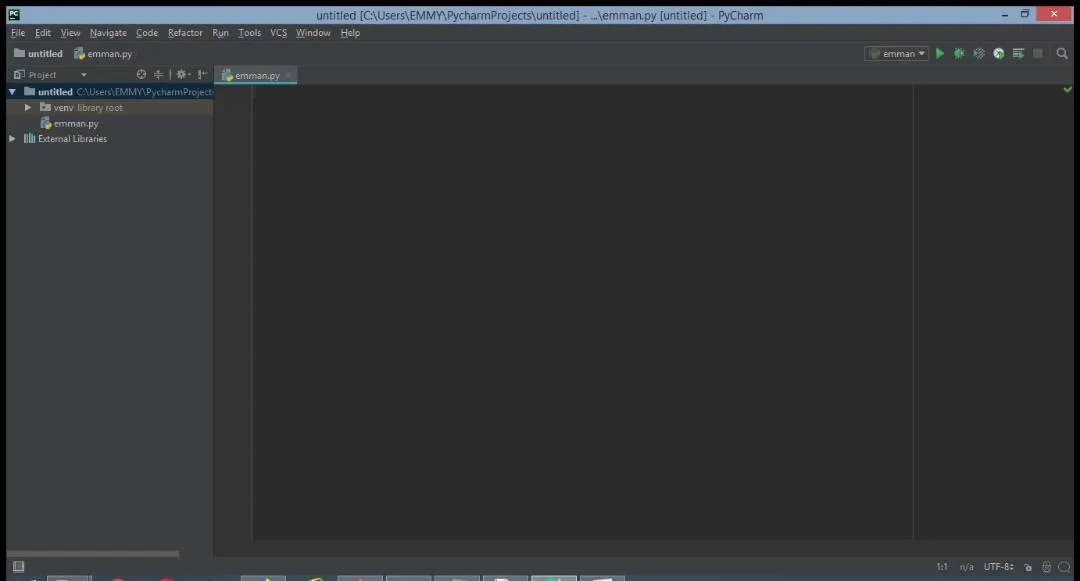
How the feedback page displays
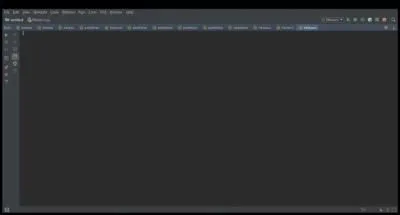
Input the Fibonacci codes here
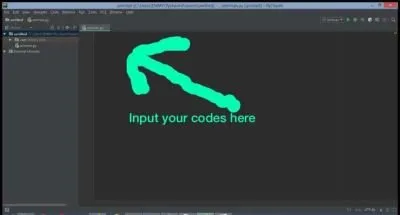
Press the Shift + F10 or click on the run icon to run the program
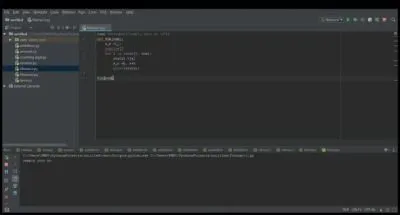
Supply your desired digit , here I used "20"
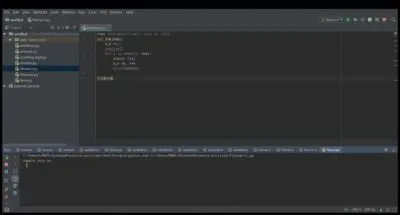
End Result
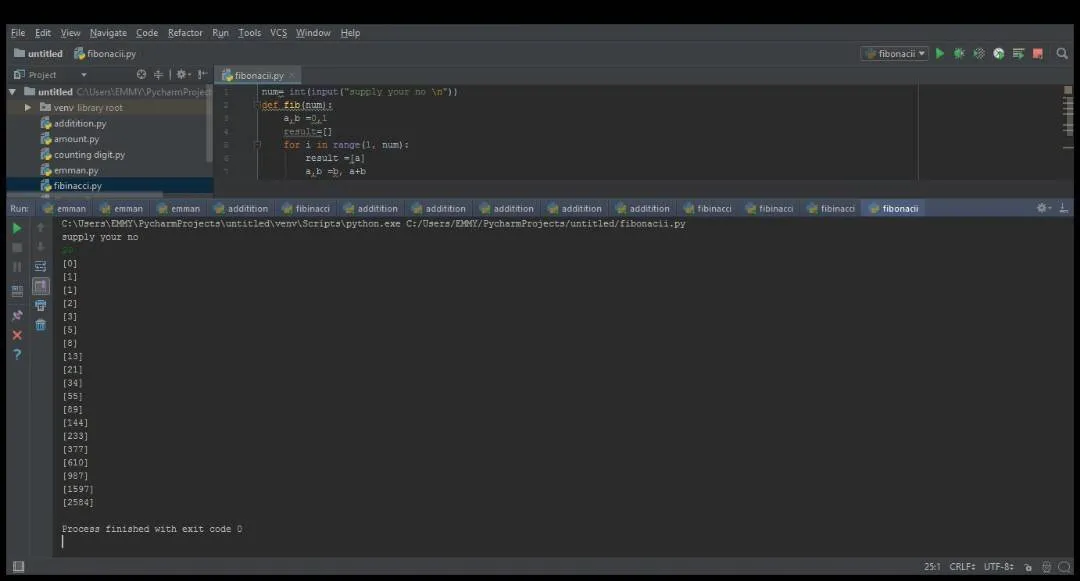
Importance of Fibonacci sequence
- To measure Levels of support and resistance of the subject in question e.g. Stock price
- To determine the price target
- And also to know the trend changes of subject of matter
Thank you
Posted on Utopian.io - Rewarding Open Source Contributors